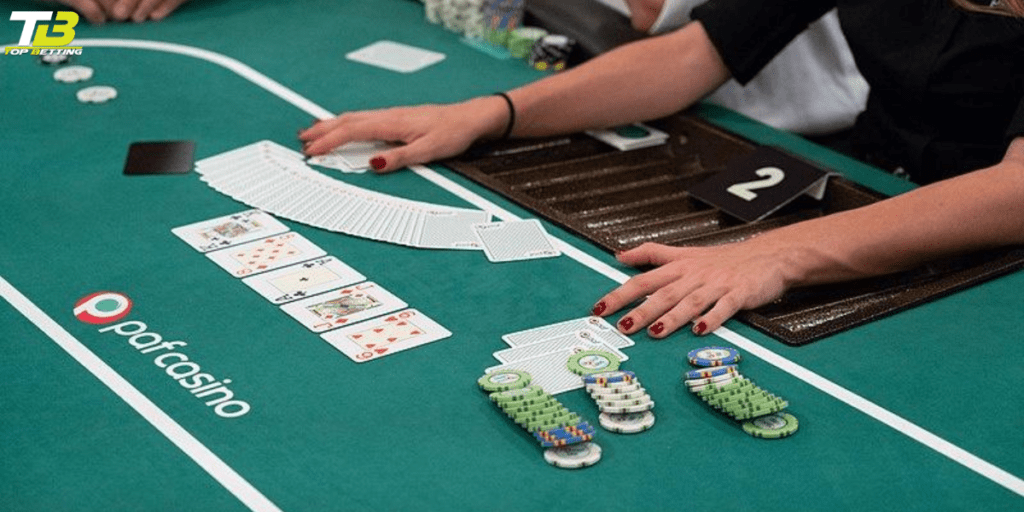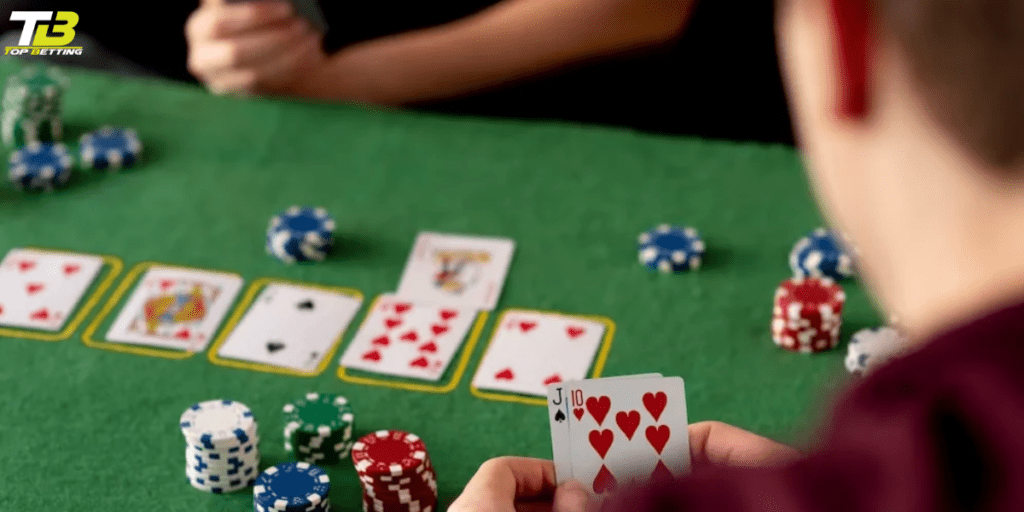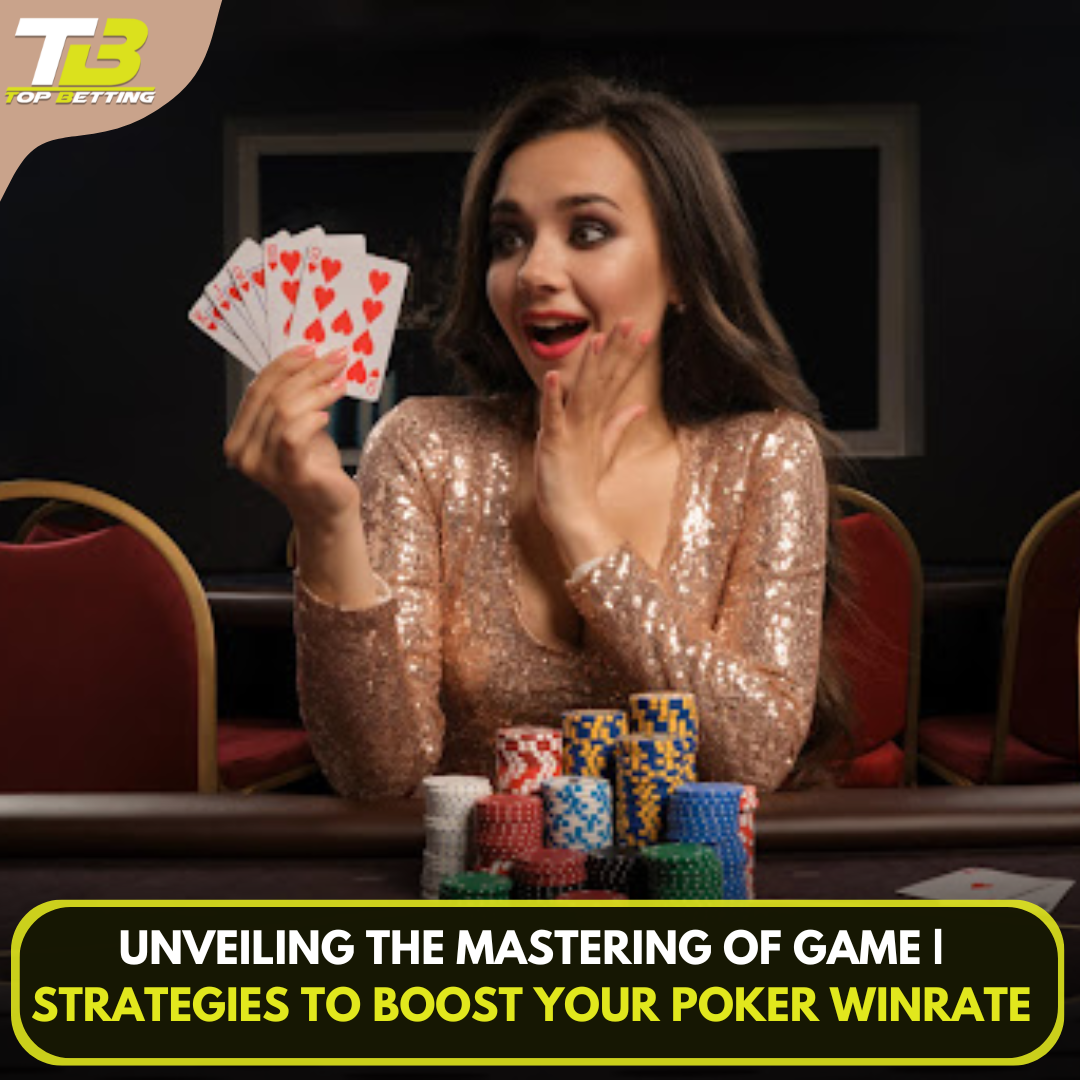
Mastering Poker Strategies to Boost Your Winrate
Looking to boost your poker winrate and take your game to the next level? Then you’ve come to the right place. In this article, we will dive deep into the strategies that can help you unveil the mastering of the game. Poker is not just about luck; it’s a skill-based game that requires a combination of strategy, psychology, and mathematics. Whether you’re a beginner looking to learn the basics or an experienced player aiming to improve your winrate, this article will provide you with the insights and tactics you need to succeed.
From understanding hand selection and position to exploiting your opponents’ weaknesses, we will explore the key factors that can give you an edge at the poker table. So, get ready to sharpen your skills, enhance your decision-making abilities, and increase your chances of winning big. Let’s dive in and take your poker game to the next level!
Importance of Mastering Game Strategies
Mastering game strategies is crucial for any serious poker player looking to improve their winrate. While luck is a factor in poker, it is the strategic decisions that ultimately determine long-term success. By understanding and implementing effective strategies, you can gain an advantage over your opponents and consistently make profitable decisions. This section will delve into the importance of mastering game strategies and highlight how they can significantly impact your overall winrate.
One of the key benefits of mastering game strategies is the ability to make informed decisions based on logic and analysis, rather than relying solely on intuition or luck. By studying and understanding the underlying principles of poker, you can develop a solid foundation of knowledge that will guide your decision-making process. This includes factors such as hand selection, position play, and understanding opponent tendencies. The more you understand the game and its various strategies, the better equipped you will be to make optimal decisions that lead to increased profitability.
Another advantage of mastering game strategies is the ability to exploit your opponents’ weaknesses. Poker is a game of psychology, and understanding the tendencies and patterns of your opponents can give you a significant advantage. By observing their actions and analyzing their playing style, you can identify weaknesses and exploit them to your advantage. Whether it’s bluffing, aggression, or playing overly tight, being able to adapt your strategy and exploit your opponents’ weaknesses will greatly increase your winrate.
In addition to improving your decision-making and exploiting opponents, mastering game strategies also allows you to effectively manage your bankroll. Bankroll management is a critical aspect of poker, as it ensures that you can sustain and grow your bankroll over the long term. By implementing sound bankroll management strategies, you can minimize the risk of ruin and ensure that you have enough funds to withstand the inevitable variance of the game. This section will explore the importance of bankroll management and provide tips on how to effectively manage your poker bankroll.
Understanding the Basics of Poker

Before diving into advanced strategies, it’s essential to have a solid understanding of the basics of poker. This section will cover the fundamental principles of the game, including hand rankings, the various betting rounds, and the importance of position.
At its core, poker is a card game played with a standard deck of 52 cards. The goal is to make the best possible hand using a combination of your hole cards (cards dealt to you) and community cards (cards dealt face-up on the table). Hand rankings determine the strength of each hand, with the highest-ranking hand winning the pot.
In addition to hand rankings, understanding the betting rounds is crucial. Poker typically consists of multiple betting rounds, with players having the option to check, bet, call, raise, or fold. Each betting round provides an opportunity to assess your hand’s strength, evaluate your opponents’ actions, and make strategic decisions based on the information available.
Position is another critical aspect of poker. The position refers to your seating arrangement relative to the dealer button, which determines the order of play in each betting round. The later your position, the more information you have about your opponents’ actions before making your own decision. This positional advantage allows you to make more informed choices, as you have more information at your disposal.
Analyzing and Exploiting Opponent Tendencies
Analyzing and exploiting your opponents’ tendencies is a key skill in poker. By understanding how your opponents play and adapting your strategy accordingly, you can gain a significant edge at the table. This section will explore various methods for analyzing opponent tendencies and provide strategies for exploiting them.
Observation is the first step in analyzing opponent tendencies. By paying close attention to how your opponents play, you can start to identify patterns and tendencies. Does a certain player consistently bet aggressively? Does another player tend to fold easily? These observations can give you valuable insights into how your opponents approach the game and help you make more informed decisions.
Once you’ve identified your opponents’ tendencies, the next step is to exploit them. Exploiting opponent tendencies involves adjusting your strategy to take advantage of their weaknesses. For example, if you notice that a player is overly aggressive, you can use this information to your advantage by trapping them with strong hands or bluff-catching with marginal holdings. On the other hand, if you identify a player who is too tight, you can increase your aggression and steal blinds more frequently.
Exploiting opponent tendencies also extends beyond individual players. By analyzing the overall table dynamics, you can identify patterns and exploit the collective tendencies of your opponents. For example, if you notice that the table is playing passively, you can increase your aggression and take advantage of the favorable conditions. Conversely, if the table is playing aggressively, you can tighten up your range and wait for premium hands to exploit their aggression.
Implementing a Solid Pre-flop Strategy
A solid pre-flop strategy is essential for success in poker. The decisions you make before the flop can set the tone for the rest of the hand and significantly impact your winrate. This section will explore the key elements of a solid pre-flop strategy and provide tips on how to make profitable pre-flop decisions.
Hand selection is the foundation of a solid pre-flop strategy. Not all hands are created equal, and understanding which hands to play in different positions is crucial. Generally, you should play tighter from early positions and looser from late positions. Premium hands like pocket aces and kings should be played aggressively, while weaker hands should be folded or played cautiously.
Position is another critical factor in pre-flop decision-making. The later your position, the more information you have about your opponents’ actions, allowing you to make more informed decisions. In late position, you can widen your range and play more hands, as you have the advantage of acting last in each betting round.
Another aspect of a solid pre-flop strategy is understanding the concept of aggression. Aggression refers to betting and raising rather than passively calling. By being aggressive pre-flop, you can build the pot, isolate weaker opponents, and put pressure on your opponents’ ranges. However, it’s important to balance your aggression with selectiveness, as being overly aggressive can lead to costly mistakes.
Developing Effective Post-flop Strategies

While pre-flop strategy sets the foundation, effective post-flop strategies are what separate the winners from the losers. This section will explore the key elements of a successful post-flop strategy and provide tips on how to make profitable decisions after the flop.
One of the crucial skills in post-flop play is hand reading. Hand reading involves analyzing your opponents’ actions and the community cards to determine the range of hands they are likely to have. By narrowing down their range, you can make more accurate decisions and exploit their weaknesses.
Another aspect of successful post-flop play is understanding board textures. Board texture refers to the combination of community cards and how they interact with each other. Different board textures require different strategies, and understanding how to navigate them is crucial. For example, a coordinated board with flush and straight possibilities requires caution, while a dry board with no draws allows for more aggression.
Balancing your range is another key element of effective post-flop play. Balancing your range means having a mix of strong hands, semi-bluffs, and bluffs in your betting and raising range. By balancing your range, you make it more difficult for your opponents to exploit your tendencies and can extract maximum value from your strong hands.
Advanced Poker Concepts and Techniques
To truly master the game of poker, it’s essential to explore advanced concepts and techniques. This section will delve into some of these advanced topics, including range construction, hand equities, and advanced betting strategies.
Range construction involves assigning a range of hands to your opponents based on their actions and the information available. By accurately constructing your opponents’ ranges, you can make more precise decisions and maximize your profitability. This advanced skill requires practice and experience but can significantly improve your winrate.
Hand equities refer to the probability of winning a hand at different stages of the game. Understanding hand equities allows you to make informed decisions based on the strength of your hand relative to your opponents’ likely holdings. By considering hand equities, you can avoid making costly mistakes and maximize your profitability.
Advanced betting strategies involve using a combination of bet sizing, timing, and other factors to manipulate your opponents’ decisions. By utilizing advanced betting strategies, you can extract maximum value from your strong hands, induce bluffs, and control the pot size. However, it’s important to use these strategies selectively and adapt to the specific dynamics of each hand and table.
Bankroll Management for Long-term Success
Bankroll management is often overlooked but is crucial for long-term success in poker. This section will explore the importance of bankroll management and provide tips on how to effectively manage your poker bankroll.
One of the key principles of bankroll management is setting aside a dedicated poker bankroll separate from your personal finances. By keeping your poker bankroll separate, you can track your progress, monitor your profitability, and ensure that you’re not risking more than you can afford to lose.
Another aspect of effective bankroll management is determining your risk tolerance and setting appropriate stop-loss limits. Every player experiences ups and downs in poker, and it’s important to set limits to protect your bankroll from significant losses. By setting stop-loss limits, you can minimize the risk of ruin and ensure that you have enough funds to continue playing and improving your game.
Lastly, regularly reviewing and adjusting your bankroll management strategy is crucial. As you move up in stakes or experience changes in your financial situation, it’s important to reevaluate your bankroll management strategy. By regularly reviewing your bankroll management plan, you can adapt to changing circumstances and ensure that you’re maximizing your long-term profitability.
Utilizing Online Resources for Improving Winrate

In today’s digital age, there is an abundance of online resources available to poker players looking to improve their winrate. This section will explore the various online resources and tools that can help you enhance your skills and increase your chances of winning big.
One of the most valuable online resources is poker training sites. Poker training sites offer a wide range of educational materials, including videos, articles, and forums, where you can learn from experienced players and industry experts. By investing in a reputable training site, you can gain access to exclusive strategies and insights that can significantly impact your winrate.
Hand analysis forums and communities are another valuable resource for improving your winrate. These online platforms allow you to post and discuss hands with other players, receive feedback, and gain new perspectives. By actively participating in hand analysis forums, you can refine your thought processes, identify leaks in your game, and learn from the experiences of others.
Poker software and tools can also provide a competitive edge. Tracking software, such as PokerTracker or Holdem Manager, allows you to analyze your own results and track your progress over time. Additionally, equity calculators, range analyzers, and other advanced tools can help you make more accurate decisions and improve your overall winrate.

Conclusion and Final Thoughts
Mastering the game of poker is a continuous journey that requires dedication, practice, and a commitment to lifelong learning. By understanding the importance of game strategies, analyzing and exploiting opponent tendencies, implementing solid pre-flop and post-flop strategies, and utilizing online resources, you can significantly boost your poker winrate and take your game to the next level.
Remember, poker is not just a game of luck but a skill-based endeavor that rewards those who are willing to put in the effort to improve. By incorporating the strategies and techniques outlined in this article, you can sharpen your skills, enhance your decision-making abilities, and increase your chances of winning big. So, embrace the challenge, strive for continuous improvement, and unveil the mastering of the game. Good luck at the tables!











